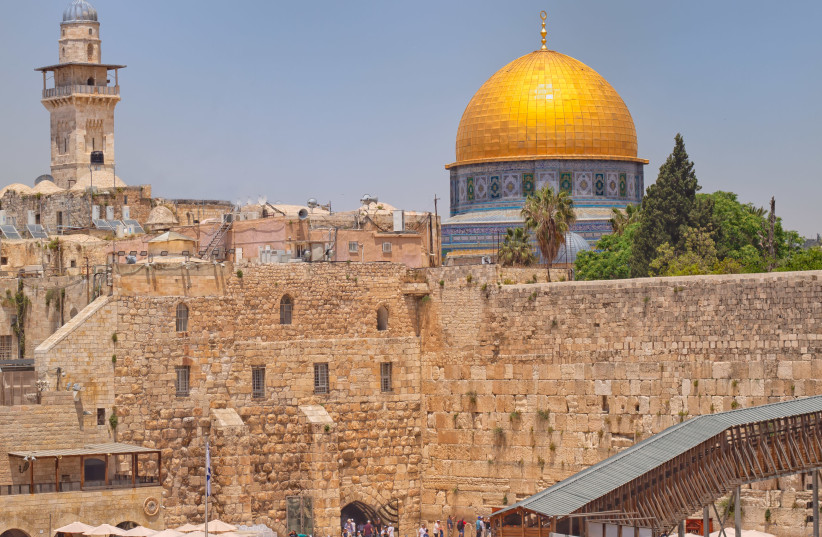Who Owns the Temple Mount?
Events over the past few weeks surrounding the Temple Mount in Jerusalem have brought into focus the Muslim Waqf and its claim to ownership over the holy site

What is the Waqf, and what is the source of its demand to retain exclusive guardianship over the Temple Mount?
Waqf in Arabic refers to a piece of real estate held in trust and dedicated to religious or charitable purposes. According to Sharia Law, once a property is designated as Waqf, there can be no possibility of transfer of ownership, not through inheritance, sale or otherwise. Waqf properties are exempt from taxes, past or present, and any accumulated debts are cancelled. Over the centuries, Christians and Jews living in some Islamic lands were allowed to designate churches and synagogues as Waqf in order to avoid paying taxes.
The Temple Mount was first defined as Waqf immediately after the Mamalukes took control of the city. Over time, Waqf authorities designated numerous properties around Jerusalem. In the 13th century, under the rule of Sultan Baibars of the Mamluk dynasty, Waqf authorities were given military forces to protect the holy sites. In this way, they succeeded in neutralizing any secular government intervention in Temple Mount affairs.
This was the status of the Temple Mount during the period of the Ottoman Empire, and though there were tensions between the religious and secular authorities, the Waqf managed to retain its position and powers as overseers of the site. As a result, and because of the central role religion plays in Islamic lands, the head of the Waqf authorities became the most powerful man in Jerusalem.
When the British occupied the Land, and the Jewish population grew, the Waqf lost much of its power. The British Mandate setup a modern municipality in Jerusalem under the authority of a secular mayor. And while the Waqf was allowed to maintain some of its properties, especially the Temple Mount, much of its authority in the city waned. After the 1948 War of Independence, an agreement was signed to transfer the Temple Mount to the Waqf of Jordan, and this is the legal and political status of the sacred compound until this day, a situation that has enmeshed Jordan in the latest skirmishes on the Mount.

After the 1967 Six Day War, during which the Temple Mount was captured, Israel did not take advantage of the situation. Moshe Dayan, who served as Minister of Defense at the time, returned rule over the site to the Jordanian Waqf.
The far-ranging history and authority of the Waqf over the Temple Mount has created a complicated political, religious and legal situation for modern Israel. Today, the Waqf retains jurisdiction in Jerusalem only over the Temple Mount, and, according to signed agreements, all of its activities are supposed to be coordinated with the government of Israel. Yet, the government of Israel remains silent as the Waqf prevents Jews from praying on the Temple Mount, the holiest site on earth for Jews. When Israeli police removed the metal detectors put up to prevent weapons from being carried up onto the Mount after a recent shooting incident in which two Israeli officers were killed, Muslims around the world celebrated yet another Israeli capitulation to Islamic authority over the site.
Many believe that a decision by Israel to retake control of the Temple Mount will ignite a regional war that could lead to a third world war. Whether or not that would happen, it is clear from Scripture that the day is coming when, “I will shake heaven and earth, and I will shake all nations, and they shall come to the Desire of All Nations, and I will fill this Temple with glory,’ says the Lord of Hosts.” Haggai 2:6-7. And, “I will bring them to my holy mountain of Jerusalem and will fill them with joy in my house of prayer. Because my Temple will be called a house of prayer for all nations.” Isaiah 56:7.
No comments:
Post a Comment